
Radu Sebastian/iStock/Getty Images
White cheddar cheese is a relatively inexpensive and widely available food, but that doesn't mean it isn't a healthy one. White cheddar cheese is a versatile food, as you can add slices of the cheese to sandwiches and burgers or crumble it on top of salads and into recipes. Exact nutritional values may vary slightly between products, so check labels when available.
Protein
One health benefit of white cheddar cheese is the rich protein content. Each 1-ounce serving of this cheese contains 7 grams of protein, which is just 1 gram less than an 8-ounce serving of milk contains. Eating foods rich in protein can help improve your body composition. Research published in May 2008 in "The American Journal of Clinical Nutrition" indicates that protein encourages satiety and a high metabolic rate, so it can keep fat at bay. Protein also provides your body with amino acids, the building blocks of muscle.
Lack of Carbohydrates
One health benefit of white cheddar cheese is that it is very low in carbohydrates, with less than .5 grams per ounce. This makes white cheddar cheese suitable for even the lowest carbohydrate diets, which can be of particular interest if you're trying to lose weight. According to research from the March 2010 issue of "Nutrition & Metabolism," very low-carbohydrate diets are good for fat and weight loss and can help you maintain strength if you exercise regularly during your weight-loss regimen.
Low in Calories
White cheddar cheese is relatively low in calories, with just 114 per 1-ounce serving. It has less than 6 percent of the allotted calories in an average 2,000-calorie diet, so you can fit this food into a variety of diet plans. If you want to lose weight, you can burn the calories in white cheddar relatively quickly; less than eight minutes of rollerblading or less than 10 minutes of jumping rope would burn 114 calories.
Rich in Calcium
White cheddar, as with other dairy products, is a good source of calcium. Each 1-ounce serving of this cheese contains 202 milligrams, or about 20 percent of the daily suggested intake of this nutrient, 1,000 milligrams. Your body uses calcium to perform metabolic functions such as hormone release, nerve transmission and muscle function, and the mineral also promotes strong bones and teeth. If you are 9 to 18 years old, the daily suggested intake is 1,300 milligrams, and if you're 71 or older, the suggested daily intake is 1,200 milligrams.
Moderately Rich in Vitamin A
White cheddar cheese is a good source of vitamin A, with 75 micrograms in each 1-ounce serving. That amount constitutes 8 percent of the daily suggested intake for men and about 11 percent of the daily suggested intake for women. Vitamin A promotes healthy eyes, mucous membranes, and skeletal and skin tissue.
Related Articles

Asiago Cheese Nutrition
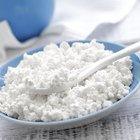
Benefits of Cottage Cheese

Can White Gravy Be Made With Almond ...

Provolone Cheese Nutrition Information
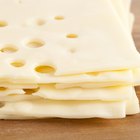
Nutrition in Swiss Vs. American Cheese
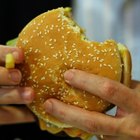
How Many Calories Are in a Whopper With ...
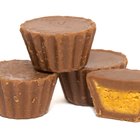
Nutritional Information for Reese's ...

Chicken Quesadilla Nutrition Information

Calories in Cheese Calzones
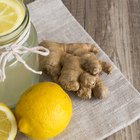
Can I Exercise on the Master Cleanse ...

How Many Calories Are in a Slice of ...

Calories in a Subway Cheese Pizza

Calories in One Slice Provolone Cheese
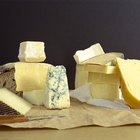
Nutritional Values of Cheese
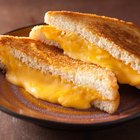
How Many Calories Are in a Slice of ...
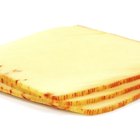
Muenster Cheese Health Benefits

Nutrition Facts for Domino's Philly ...

Nutrition Information on Blueberries
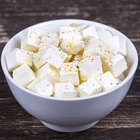
How Much Fat Is in Feta Cheese?

How Many Calories Is Wheat Toast?
References
- USDA National Nutrient Database: Cheese, Cheddar
- The American Journal of Clinical Nutrition: Protein, Weight Management, and Satiety
- Nutrition & Metabolism: Resistance Training in Overweight Women on a Ketogenic Diet Conserved Lean Body Mass While Reducing Body Fat
- MayoClinic.com: Exercise for Weight Loss: Calories Burned in 1 Hour
- MedlinePlus Medical Encyclopedia: Vitamin A
Writer Bio
Brian Willett began writing in 2005. He has been published in the "Buffalo News," the "Daytona Times" and "Natural Muscle Magazine." Willett also writes for Bloginity.com and Bodybuilding.com. He is an American Council on Exercise-certified personal trainer and earned a Bachelor of Arts in journalism from the University of North Carolina.
Photo Credits
Radu Sebastian/iStock/Getty Images